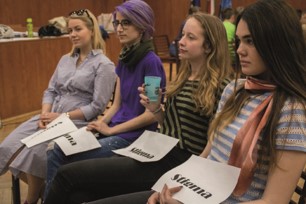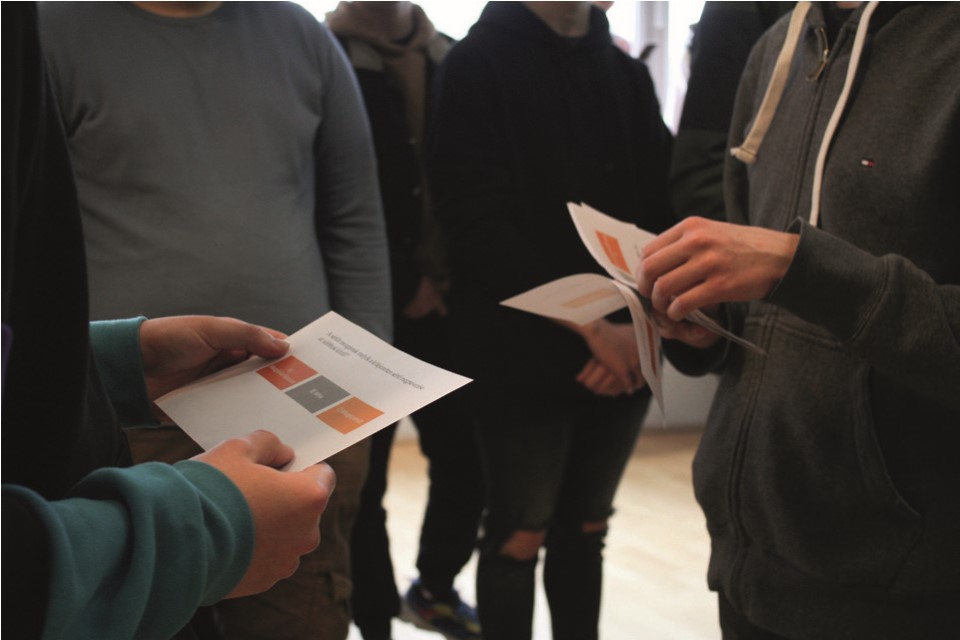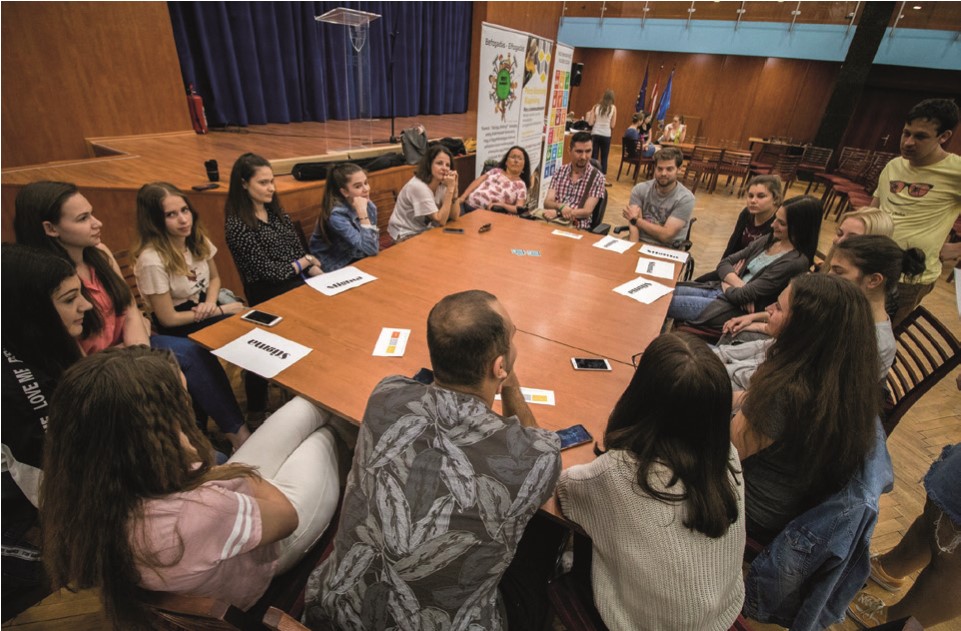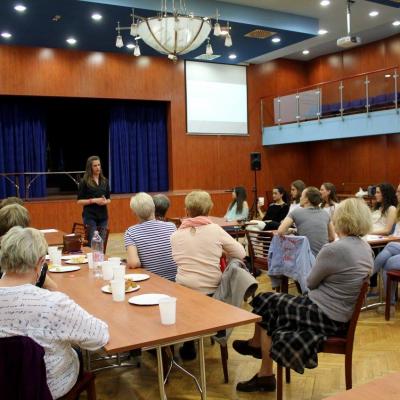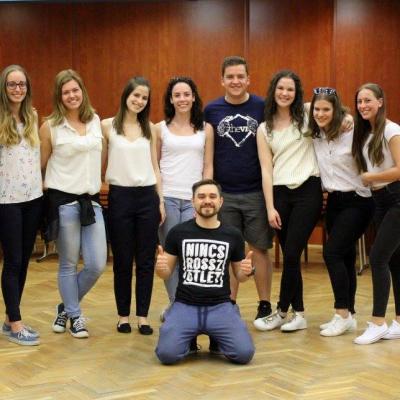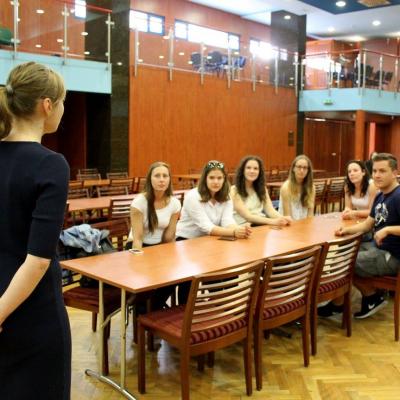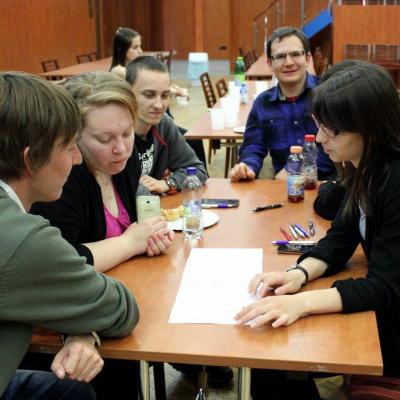How to play?:
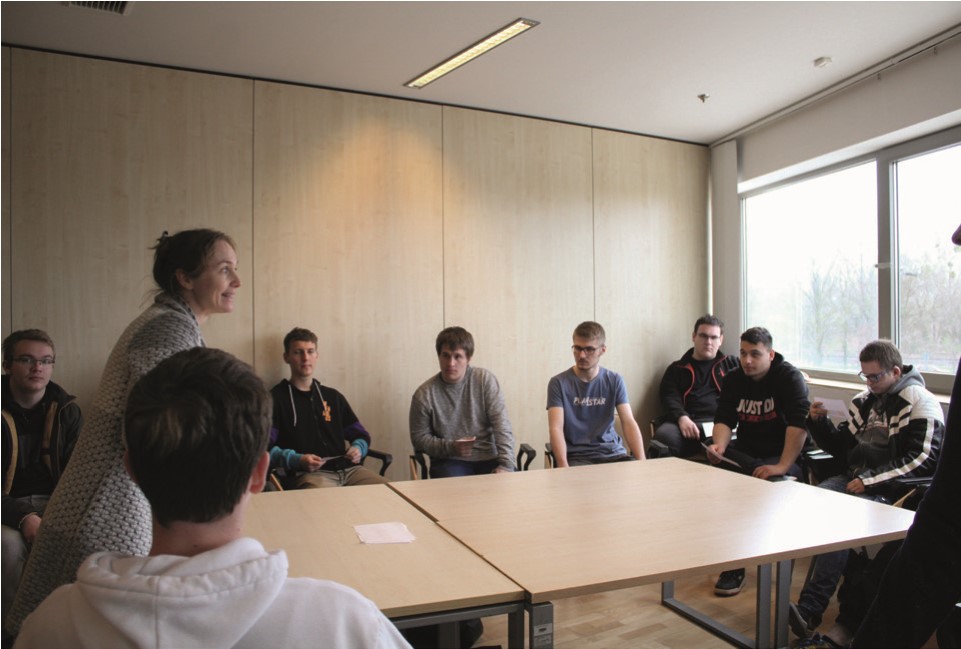 The aim of the game is to raise awareness among people of ablebodied society of how their disabled peers are discriminated against, even when they are not aware of it, and even when their goal is to help them. It is all in the ‚how’. In a decision-making situation, the game challenges participants to find the basic, fair rules that make society work, and in their responsible decisionmaking process, they learn about the barriers that prevent people with disabilities from participating in democratic institutions. The session consists of a game simulating a highly discriminatory system and a T-group discussion. The game introduces different types of disability and divides the participants into able-bodied and disabled people. In the T-group session, participants in different roles share and process together their feelings about what they have experienced.
The aim of the game is to raise awareness among people of ablebodied society of how their disabled peers are discriminated against, even when they are not aware of it, and even when their goal is to help them. It is all in the ‚how’. In a decision-making situation, the game challenges participants to find the basic, fair rules that make society work, and in their responsible decisionmaking process, they learn about the barriers that prevent people with disabilities from participating in democratic institutions. The session consists of a game simulating a highly discriminatory system and a T-group discussion. The game introduces different types of disability and divides the participants into able-bodied and disabled people. In the T-group session, participants in different roles share and process together their feelings about what they have experienced.
Skills improved
Increase knowledge about types of disability, develop competences for consensual decision-making, self-awareness and self-reflective skills regarding discriminatory behaviour.
Background
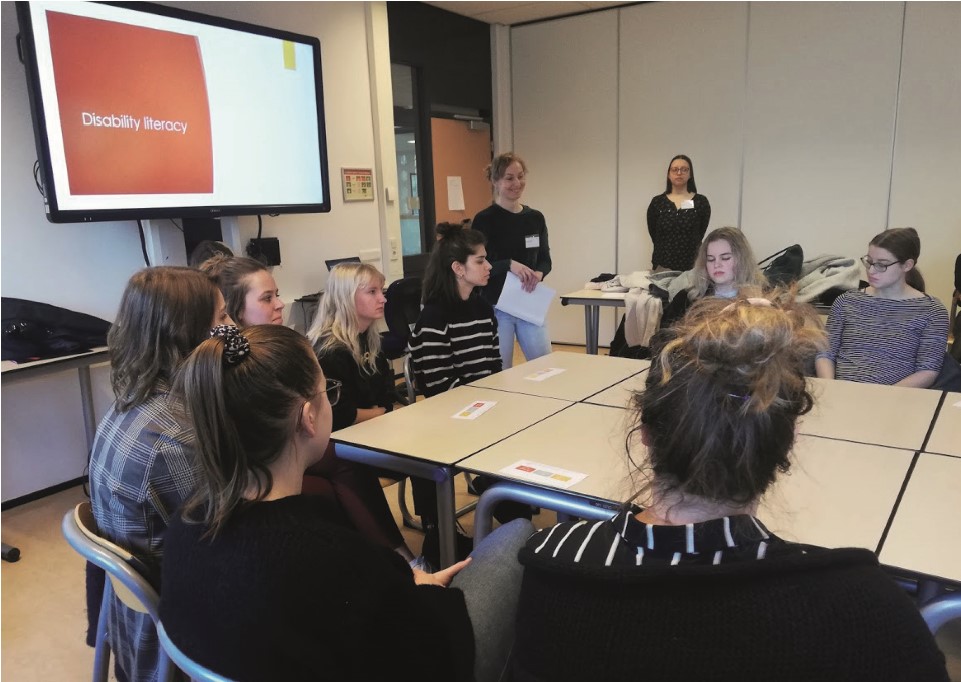
Bring them back! has been tested 32 times between December 2018 and April 2023, with a total of 421 participants. In each test, the number of participants varied between 3-42, with the ideal number of participants, where group dynamics were best, ranging from 12-18. Most participants were aged 17-25, the youngest was 14 and the oldest was 63. A total of 12 countries were represented, 9 tests were conducted abroad (8 in the Netherlands, 1 in Turkey), 4 with international university students in Pécs. In 3 test groups, a total of 7 participants had a visible disability, and almost all test groups had someone with an invisible disability.
The creators
The game was developed by Inez Zsófia Koller based on political philosophy, ethical and psychological theories. Máté Balogh and István Ábrahám Bálint assisted in the development and later in the testing as game masters. Inez Zsófia Koller is an assistant professor at the College of Social Studies on Social Inclusion and institutional disability coordinator at the University of Pécs. It is important to her to provide as much information and knowledge as possible about disability to able-bodied members of society and that this is done in a way that does not discourage and pity people, but rather makes them understand and self-reflect.
